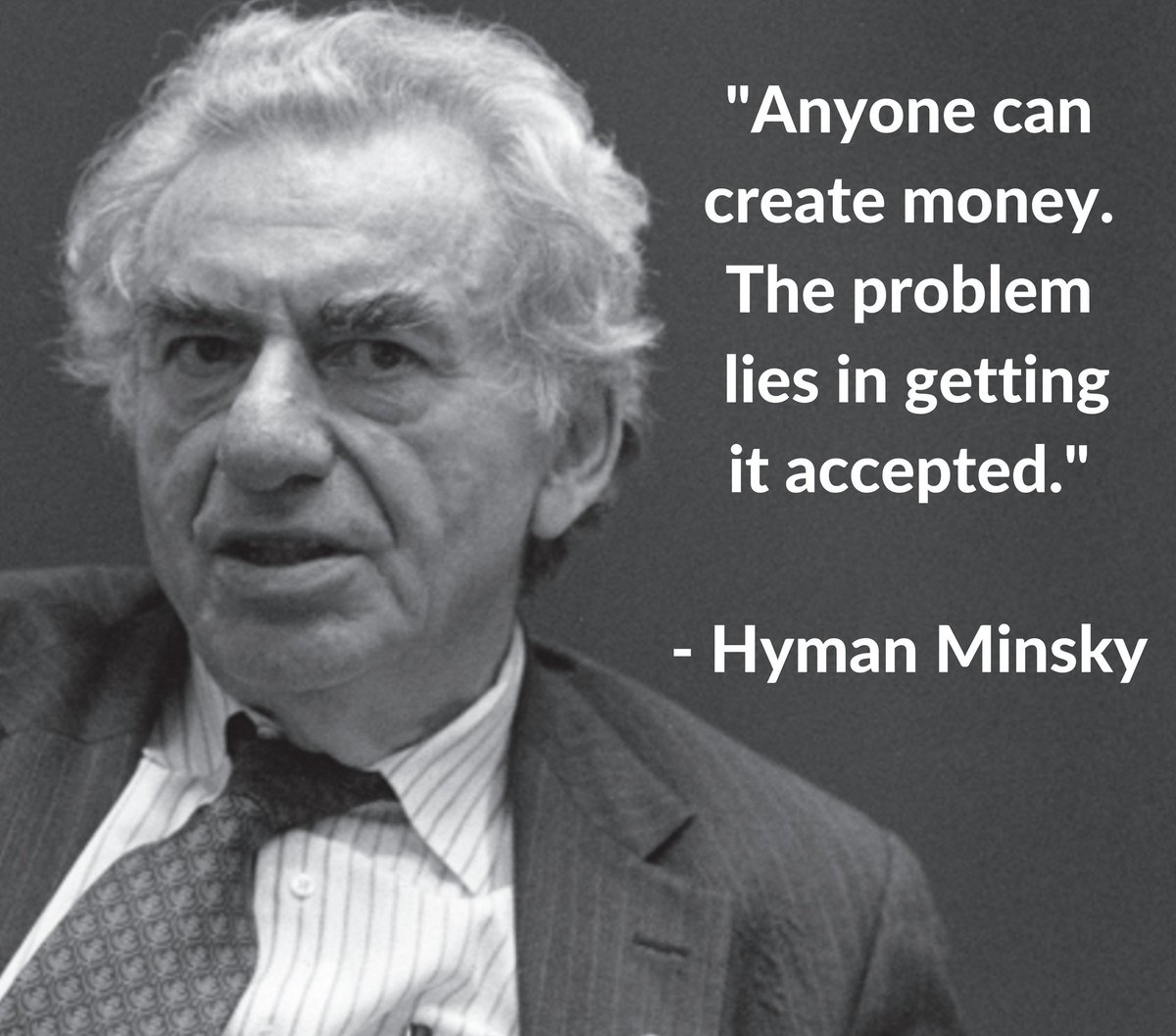But it's wrong. Nobody controls the money supply. It's on auto-pilot. (1/n)
Economists have known that part for a long time, but they used to also think that the gov could control this process. (4/)
But the gov ISN'T controlling the amount of gov money. It can't. (7/)
Can the gov limit the amount of physical cash? No. What would happen if you went to (8/)
No. The reason is, the bank can't even control the quantity of bank money it creates. The bank can't control when you use or pay your (11/)
What's the takeaway here? (15/)




